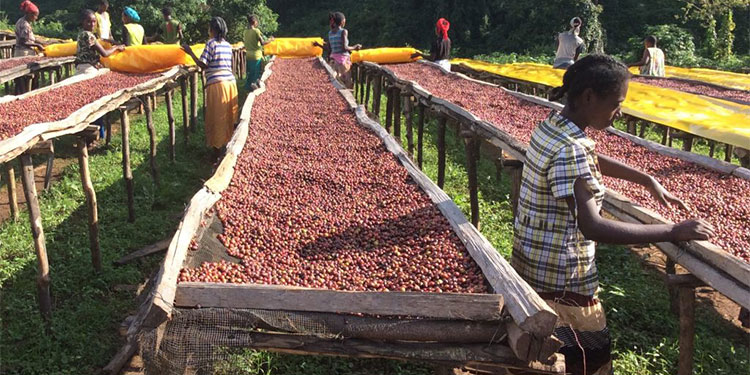
Coffee is a primary source of income for more than 12 million households in Africa and contributes a significant proportion of tax income in a number of these countries.
It is against this backdrop the Inter African Coffee Organisation (IACO) has joined forces with the Centre for Agriculture and Biosciences International (CABI) and the International Coffee Organization (ICO) to launch the US$950 million ‘Africa Coffee Facility’ (ACF) to boost Africa’s coffee industry and achieve a 40 percent increase in high-quality exports worth US$5 billion a year.
“The ACF is an ambitious fund which seeks to attract private and public sector investment to transform Africa’s coffee industry from a subsistence to a commercial or entrepreneurial approach where millions of smallholder coffee farms will see their livelihoods significantly enhanced.” Said, Dr. Fred Kawuma, Secretary-General of the IACO.
The ACF is projected to transform Africa’s coffee production – currently 10 percent of the global coffee market – into a vibrant and resilient industry again.
The leading exporter value of African countries is recorded by Ethiopia – $762.8m annually, followed by Uganda – $468.4m, Kenya – US$229.5m and Tanzania – US$129.2m.
Mwangi Kiunjuri, Cabinet Secretary, Ministry of Agriculture Livestock and Fisheries stated, “We need to build the capacity of our smallholder producers as well as revamp our producer organizations, empower women and the youth through entrepreneurship development. This includes a value chain transformation from a subsistence to an entrepreneurial orientation among our farmers.”
The Government of Kenya assigned 3 billion Kenya Shillings (USD 30 million) for a coffee producer’s development.
For the first time ever Donors and Partners Conference was held under the theme “financing the African coffee value chain through the Africa Coffee Facility”. This was attended by bilateral donors, banks, development partners, development partners, and the coffee farming community amongst other stakeholders, foundations and private sector.
It is anticipated that the ACF, which will be hosted by Afreximbank, will also develop and promote domestic consumption of coffee set against the challenges of climate change and the need to empower younger farmers and women into the sector.
The strategic aims of the ACF over its 10-year tenure will be to invest $500m on building a sustainable coffee supply, $100m on improving demand, market linkages and investments, $200m on putting in place climate change adaptation and environmentally resilient practices and $150m promoting knowledge management and dissemination.
The initial funding of almost $1bn is expected to achieve in the first five years.
Partners and potential donors at the forum heard how Africa’s coffee value chain must-see vast improvements in production and cooperative systems, many of which have either failed or collapsed, in order to compete in the global market place.
Dr. Denis Seudieu, Chief Economist, the International Coffee Organization, said, “Although many initiatives have been taken in some countries, many challenges still hamper the achievement of a sustainable coffee sector in Africa. However, there’s an opportunity to move the African coffee sector from a subsistence to an entrepreneurial one. This will enable our farmers to have sustainable income generation and the long-term security of their livelihoods.”
Part of the ACF’s mission, in looking to improve the quality of Africa’s coffee free from crop pests and diseases, making it safe to consumers – an area in which CABI specializes.
Dr. Morris Akiri, Regional Director, CABI Africa, said, “CABI is delighted to be working in partnership to help create an African coffee industry which is resilient to climate change and strong enough to compete and succeed in a highly competitive and often volatile global market. ”
He added that the organization will not only work to help put the latest knowledge and skills on coffee pest management into farmers’ hands in the field but also to disseminate information, skills and best practice along with all points of the coffee value chain.
